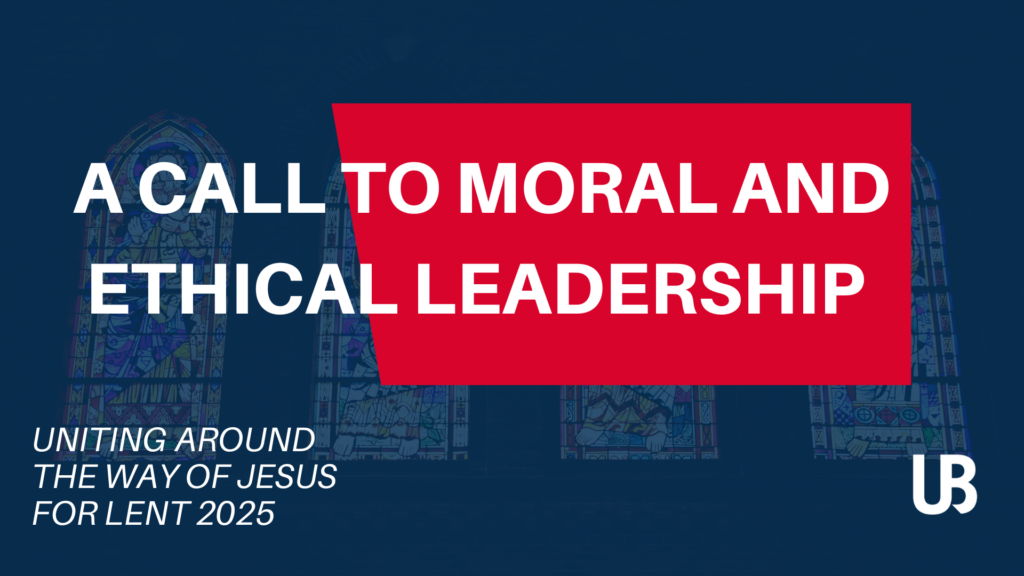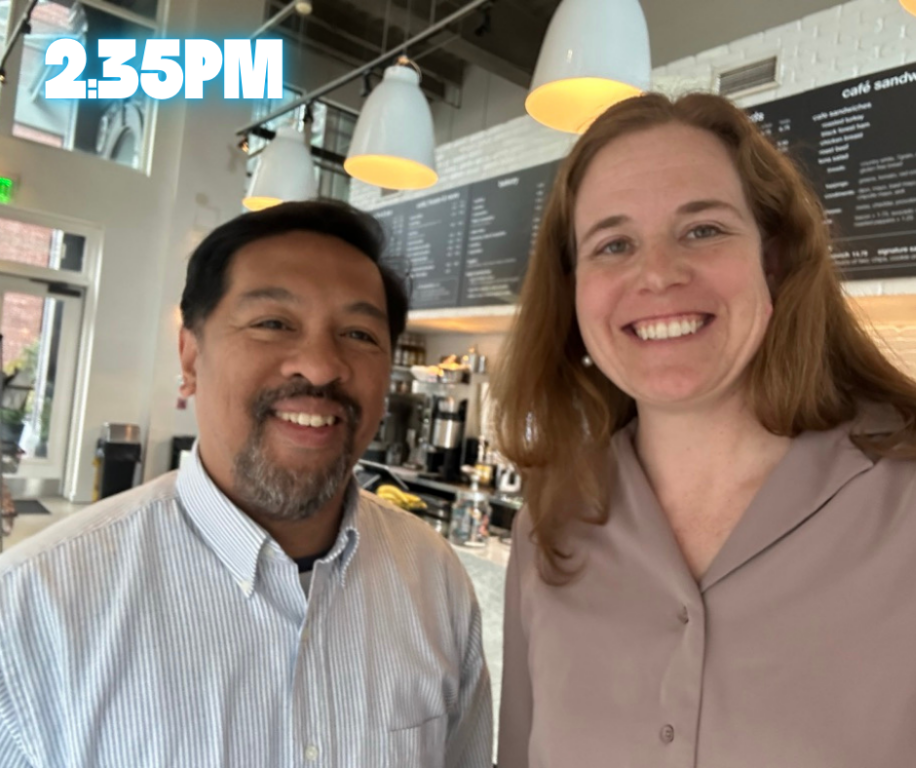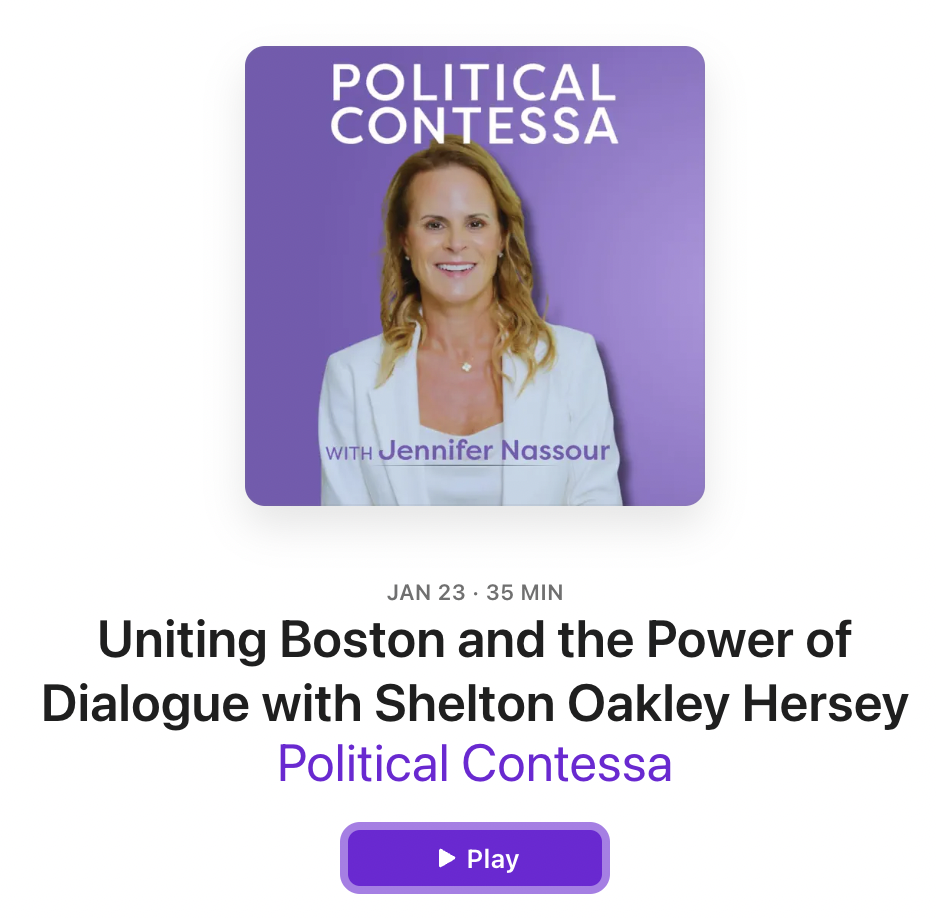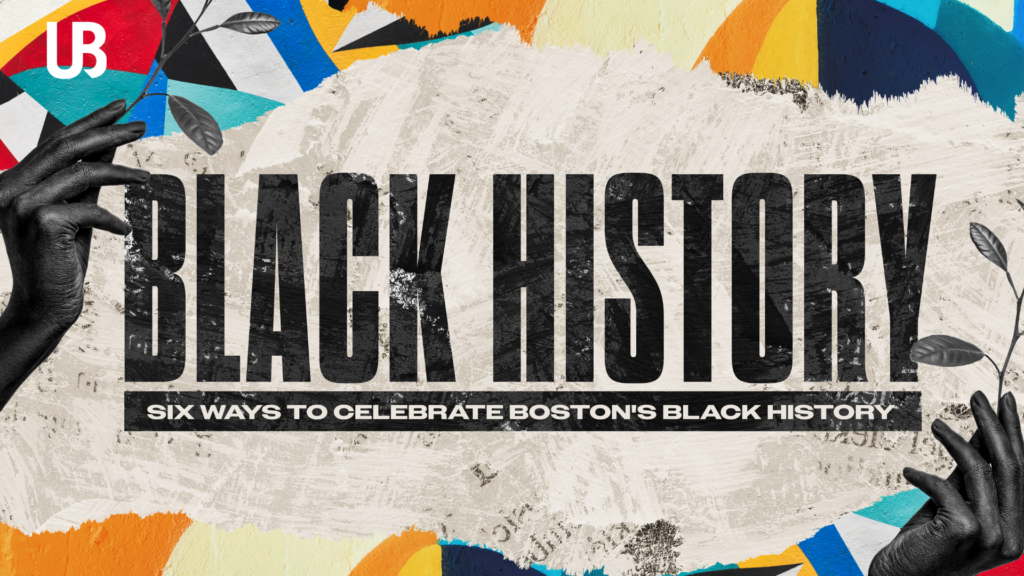
In this pivotal moment of political polarization and social upheaval, UniteBoston is issuing a call to moral and ethical leadership, inviting all Christians to repent from how we have strayed from the Way of Jesus and return to the core ethical and moral Biblical principles of love, justice, integrity, equity, and peace.
Lent is a season of reflection, repentance, and renewal, calling us to turn from sin and realign with God’s will. Just as Jesus spent 40 days in the wilderness preparing for His ministry, we are invited to examine our lives, confess where we’ve fallen short, and commit to change our ways. This is an opportunity to do the deep inner work of upholding the morals, ethics, and character of Christ, that we can individually and corporately be the people that the world needs right now and build up our common life together.
Local Christians brought this idea to our attention based on the divisiveness and harm they have seen taking place in current events, and we feel compelled to respond in this critical hour. In response, UB leadership has collaborated with them to draft and extend this invitation to the wider UniteBoston community and beyond. We see strong alignment between this call to moral and ethical leadership and UB’s efforts to strengthen the foundations of our Christian witness. This initiative builds on our Church & Civic Engagement gathering, where 70 leaders committed to Keep in Step with the Holy Spirit, and aligns with our current Fortify campaign.
In spite of our political differences, join us to recommit ourselves to the following twelve principles interwoven in the overall message of the Bible and the Gospel of Jesus Christ.
By signing, we pledge to:


Our goal this Lenten season is to gather 500+ signatures from a politically diverse Greater Boston Christian community to personally and publicly repent, receive God’s forgiveness and recommit themselves to moral and ethical leadership.
To follow up from these commitments, we are planning to form a team of diverse Christians from varying political backgrounds to discern next steps, such as:
- Hosting kingdom conversation gatherings across political differences to foster more fruitful, challenging, and curious conversations in our church communities
- Calling our community leaders, including church, business, and elected government officials, to exemplify this type of moral and ethical leadership
- Taking action together to support those most vulnerable among us, such as the poor, widow, orphan, and immigrant (Zec 7:10) and supporting grassroots initiatives to address systemic inequities that are preventing the flourishing of all neighbors in our beloved city.
We pray that these opportunities for inward reflection, repentance, and outward action taking will plant the seeds of reconciliation and forgiveness that is needed to address the division and polarization harming the Church. Our hope is that we might offer an authentic, Christ-centered public witness, full of God’s truth, grace, and love (Jn 13:35).
Join us to rise above political division and stand together in the Way of Jesus.
A Call to Moral and Ethical Leadership Through Confession and Repentance
1. Love my neighbor as myself.
True leadership begins with love in action—a love that transcends political and ideological divides, embracing compassion and solidarity with all (Lk. 10:25-37). To love our neighbor is to act for their well-being, to listen with humility, and to seek peace over polarization (Jer. 29:4-14). Love does not harm and is the summary of all God’s commands to His people (Rom. 13:8-12).
I have acted believing that I’ll take care of my needs first and foremost, and other people can take care of themselves. Lord Jesus, forgive me.
2. Steward responsibly the authority entrusted to me.
Leadership is not about power for personal gain but about stewarding influence for the flourishing of all (Acts 14:8-18). Leaders recognize that authority is a trust, not a weapon—one that must be exercised with wisdom, justice, and accountability (Mt. 25:14-30). Stewardship acknowledges that everything is God’s and we are to work and take care of all of God’s creation, recognizing that what affects one of us ultimately affects us all (Gen. 2:2-15).
I have acted believing that what I have is mine, and I’ll do with it as I see fit, and I’ve neglected the common good. Lord Jesus, forgive me.
3. Live a life of holiness in a world yearning for wholeness.
In a society fractured by fear, brokenness and lies, leaders must embody the hope, integrity, and life that people long for (Isa. 61:1-11). Followers of Jesus are called to reflect the light of Christ in a world that often rewards deception and evil (Jn. 3:16-21). With Christ as our foundation, we are called to live moral and godly lives so people can see Christ through us (1 Pet. 2:4-12).
I have acted believing that I’ll do what’s right for me and what others do doesn’t concern me. Lord Jesus, forgive me.
4. Move out of my self-centeredness to live for the greater good.
A moral leader rejects personal self-interest as the highest aim, choosing instead to serve the marginalized, the vulnerable, and the common good, to God’s glory (Ps. 40:5-10). Leadership is not about self-preservation but about service and sacrifice for the sake of mercy and justice (Lk 4:14-20). Followers of Jesus live with purpose to proclaim and demonstrate God’s love for the world (Acts 8:26-40).
I have acted believing that the world and my purpose of life is centered around me. Lord Jesus, forgive me.
5. Admit when I’ve done wrong, then think and act differently to make it right.
A just society is not built on denial and deflection but on repentance and restoration (Eze. 18:25-32). Leaders must humbly acknowledge wrongdoing, whether personal or systemic, and take active steps toward restitution and repair (Lk. 19:1-10). We all must give and accept forgiveness to be agents of reconciliation in the world and bear witness to Christ’s reconciling work (2 Cor. 5:14-21).
I have acted believing that there is no right and wrong, and I’m accountable only to myself. Lord Jesus, forgive me.
6. Use wealth and power wisely, as these idols easily enslave us all.
God calls us to worship and obey Him alone and not be enslaved by the idols of this world (Lk. 16:9-15). The love of money and the pursuit of power have corrupted many leaders (1 Tim. 6:6-10). A moral and ethical leader rejects greed, exploitation, and economic injustice, opting instead to steward resources in ways that honor human dignity and promote the well-being of the community (Eccl. 5:10-20).
I have acted believing that money, power and status are the most important things in life. Lord Jesus, forgive me.
7. Respect and work with all people, especially those that differ from me.
Leaders are called to cultivate communities of belonging, respect and welcome, rather than giving in to the sinful tendencies of division and hatred (Rom. 15:7, Col. 3:1-15). As followers of Jesus, we are especially called to unity in diversity (Eph. 4:1-16) and to extend love not only to those who are like us but even to our enemies (Mt. 5:43-48). Our treatment of one another matters—we must put to death the desires of the flesh, including hatred, discord, jealousy, rage, selfish ambition, dissension, and envy. Instead, we are to cultivate the fruit of the Spirit: love, joy, peace, patience, kindness, goodness, faithfulness, gentleness, and self-control (Gal. 5:16-25).
I have acted believing that the people who look and think like me are the only people that matter. Lord Jesus, forgive me.
8. Fight to restore hope in the midst of our brokenness.
In a world plagued by cynicism and despair, leaders must point towards the heavenly vision of shalom: nothing broken, nothing missing, and everything in right relationship (1 Pet. 1:3-12). This means standing against the brokenness by encouraging one another to build a future where hope is tangible and joy sustains us all (Amos 9:11-15). We lead others to full and complete lives as we follow the example of Jesus, the Good Shepherd (Jn. 10:9-11).
I have acted believing that the world is messed up and there is nothing I can do about it. Lord Jesus, forgive me.
9. Serve others with humility.
Jesus redefined leadership as servanthood (Jn 13:12-17). True leaders do not seek status or control but embrace humility, contentment, and a commitment to the well-being of others (Phil. 2:1-4). Followers of Jesus serve others with humility out of gratitude for Jesus’ service to us (Isa. 53:1-12).
I have acted believing that my value is based on what people think of me and on the possessions that I have and need more of. Lord Jesus forgive me.
10. Show costly generosity even to those who are against me.
We are all called to generously love those who mistreat or hate us (Lk. 6:27-36) out of a recognition of the generous love that Christ has shown to us. We should sacrifice our own wants and desires for the benefit of others (2 Cor. 9:6-13), so there might be equality (2 Cor. 8:14). Followers of Jesus live sacrificially to honor God and point to Jesus’ sacrifice on the cross for us (1 Chron. 29:6-17).
I have acted out of a scarcity mindset, believing that everyone else is looking to take from me and that I need to look out for myself first. Lord Jesus, forgive me.
11. Stand in solidarity with the poor and the vulnerable.
Jesus will judge all of us on how we show mercy to the hungry, the foreigner, the naked, the sick and the prisoner (Mt. 25:31-46). Moral leadership demands that we defend the cause of the oppressed while also working to repair the harm that we have caused to the most vulnerable among us (Deut. 10:14-19). We must show mercy to others because God has shown mercy to us (1 Tim. 1:12-16).
I have acted believing that people deserve their bad circumstances, rather than seeing the structural systems that advantage some over others. Lord Jesus, forgive me.
12. Act with integrity and treat every person equally.
The Christian faith is built on the equal dignity, belovedness and worth of every person (Gen. 1:26, Jas. 2:1-13). In a world where inequality and discrimination persist because of our sin and sinful structural advantages that value some over others, leaders must stand for truth, integrity, and justice for all groups and individuals (Isa. 58:1-14).
I confess that I have failed to honor the dignity of all people as God’s beloved children and that I need to use any advantage I have to keep myself ahead and others down. Lord Jesus, forgive me.
List of Signatures
Below is the list of people who have signed this commitment publicly so far, updated every day or so.
J. Garciano (Winchester, MA)
D. Saff (Arlington, MA)
G.F. Hicks (Stoughton)
K. Fassett (Boston, MA)
S. Gautier (East Boston, MA)
M. James (Chestnut Hill, MA)
D. Scott (Newton, MA)
M. Lietz (Boston, MA)
S. Rice (Arlington, MA)
J. Marcucci (Medford, MA)
M. DeJong (Waltham, MA)
B. Pierce (Brighton, MA)
R. Lutjohann (Cambridge, MA)
K. Hampson (Quincy, MA)
S. DeBonis (Quincy, MA)
H. Ho (Winchester, MA)
S. Brill (Worcester, MA)
O. Aarons-Martin (Brockton, MA)
S. Richardson (Reading, MA)
E. Gaskin (Randolph, MA)
M. Priest (Boston, MA)
J. Stanton (Medford, MA)
We invite you to share this call to moral and ethical leadership via email or through social media, as our goal this Lenten season is to gather 500+ signatures from a politically diverse Greater Boston Christian community to personally and publicly recommit themselves to these Biblical principles.
 Sign the petition on Google Forms here
Sign the petition on Google Forms here










